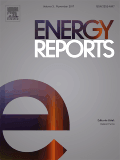
Energy Reports
Scope & Guideline
Connecting Researchers to Transform Energy Practices
Introduction
Aims and Scopes
- Energy Generation and Conversion Technologies:
The journal delves into various energy generation technologies, including renewable sources such as solar, wind, and hydro, alongside traditional methods. This includes advancements in photovoltaic systems, energy storage solutions, and hybrid systems. - Energy Efficiency and Management:
Research on optimizing energy use in industrial, commercial, and residential sectors is a core focus. This includes demand-side management, energy audits, and the implementation of energy-efficient technologies. - Environmental Impact and Sustainability:
Papers often explore the environmental implications of energy technologies, including carbon emissions, life cycle assessments, and the role of energy in achieving sustainability goals. - Smart Grids and Energy Systems Integration:
The journal addresses the integration of renewable energy sources into existing grids, smart grid technologies, and the use of data analytics and machine learning for optimizing energy systems. - Policy and Economic Analysis of Energy Systems:
It includes discussions on regulatory frameworks, economic impacts of energy policies, and the role of financial mechanisms in promoting sustainable energy practices. - Innovations in Energy Storage and Conversion:
Research on new materials and technologies for energy storage, such as batteries, supercapacitors, and thermal energy storage systems, is emphasized.
Trending and Emerging
- Decentralized Energy Systems and Microgrids:
There is an increasing focus on decentralized energy systems, including microgrids and community energy systems, which promote local energy generation and consumption. - Artificial Intelligence and Machine Learning in Energy:
The application of AI and machine learning for predictive modeling, energy management, and optimization of energy systems has gained significant traction, reflecting the digital transformation in the energy sector. - Hydrogen Economy and Fuel Cells:
Research on hydrogen production, storage, and utilization, particularly in fuel cells, is emerging as a crucial area, driven by the need for clean energy solutions. - Energy Resilience and Security:
Papers addressing energy resilience, particularly in the context of natural disasters and cyber security, are trending, highlighting the importance of robust energy systems. - Sustainable Urban Energy Solutions:
There is a rising interest in sustainable energy solutions tailored for urban environments, focusing on energy efficiency, smart city technologies, and community engagement. - Life Cycle Assessment and Circular Economy:
Research emphasizing life cycle assessments of energy technologies and the integration of circular economy principles in energy production and consumption is becoming more prevalent.
Declining or Waning
- Traditional Fossil Fuel Technologies:
There has been a noticeable decrease in research centered around traditional fossil fuel extraction and utilization technologies, as the focus shifts towards renewable energy and sustainability. - Nuclear Energy Research:
Papers related to nuclear energy technologies have become less prominent, likely due to increasing public concern over safety and waste management, coupled with a global shift towards renewable sources. - Basic Energy Economics without Renewables Focus:
Research focusing solely on energy economics without consideration of renewable technologies is declining, as the integration of sustainability into economic models becomes a priority. - Conventional Energy Storage Solutions:
Interest in conventional energy storage systems, such as pumped hydro storage, is waning in favor of more innovative solutions like advanced battery technologies and hybrid systems.
Similar Journals

INTERNATIONAL JOURNAL OF ENERGY RESEARCH
Shaping the future of energy through collaborative insights.INTERNATIONAL JOURNAL OF ENERGY RESEARCH (ISSN: 0363-907X; E-ISSN: 1099-114X), published by Wiley-Hindawi, stands at the forefront of energy research, offering a scholarly platform pivotal for advancing knowledge in the fields of energy engineering, nuclear energy, fuel technology, and renewable energy systems. With an impressive Q1 and Q2 ranking across several categories as of 2023, this journal reflects a commitment to high-quality, peer-reviewed research that addresses both theoretical and practical challenges in the energy sector. Now an Open Access journal since 2023, it enhances accessibility and dissemination of cutting-edge research to a global audience. Located in the United Kingdom, with an active publication history dating back to 1977, the journal aims to contribute to sustainable energy solutions and innovative technologies. Researchers, professionals, and scholars will find valuable insights and discussions here, bridging gaps in energy research and policy-making.

Smart Energy
Leading the Charge in Smart Energy SolutionsSmart Energy, an esteemed publication by ELSEVIER, stands at the forefront of energy research, exploring innovative solutions and sustainability practices in the energy sector. With an impressive Open Access model since its inception in 2021, this journal has rapidly established itself as a vital resource for researchers and professionals alike, providing unrestricted access to high-quality peer-reviewed articles. Positioned in the Q1 category across multiple fields, including Energy Engineering and Power Technology, Renewable Energy, and Management, Monitoring, Policy and Law, Smart Energy demonstrates a strong commitment to advancing knowledge in the energy domain. Registered under the ISSN 2666-9552, it garners significant attention, ranking within the top ranges of Scopus metrics across various disciplines. The journal continuously aims to bridge the gap between academic research and practical application, making it an essential outlet for scholars and practitioners dedicated to fostering sustainable energy solutions worldwide. Located in the United Kingdom, Smart Energy is shaping the future of energy management from its publishing base in Amsterdam, the Netherlands.
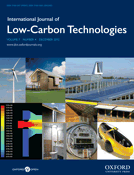
International Journal of Low-Carbon Technologies
Championing the integration of sustainability and technology.International Journal of Low-Carbon Technologies is a premier, peer-reviewed publication dedicated to advancing the field of low-carbon technologies and sustainable practices. Published by OXFORD UNIVERSITY PRESS, this journal serves as a vital resource for researchers, professionals, and students alike, providing insightful research and innovative solutions for a sustainable future. With its ISSN 1748-1317 and E-ISSN 1748-1325, the journal is recognized globally, boasting an impressive impact in its categories, including a Q1 ranking in Architecture and Q2 rankings in both Civil and Structural Engineering and Environmental Science as of 2023. It is open access since 2014, facilitating the dissemination of knowledge to a wider audience, and encourages critical discourse on environmental sustainability across converging disciplines. The journal’s Scopus rankings reflecting its standing—ranked #23 in Architecture (88th percentile) and #130 in Civil and Structural Engineering—underscore its importance in driving forward the scientific agenda in low-carbon technologies. As we journey from 2007 towards 2024, the International Journal of Low-Carbon Technologies remains a cornerstone for research and dialogue in reducing carbon footprints and promoting resilient infrastructure.

Frontiers in Energy Research
Connecting knowledge and innovation in energy research.Frontiers in Energy Research is a prestigious open-access journal published by FRONTIERS MEDIA SA, dedicated to advancing knowledge in the diverse fields of energy research. Launched in 2013, the journal has established itself as a pivotal platform for disseminating high-quality research, particularly in areas such as Economics and Econometrics, Energy Engineering and Power Technology, and Renewable Energy, Sustainability and the Environment. With a notable impact factor and impressive quartile rankings, including Q2 in multiple categories and a reputation for rigorous peer review, Frontiers in Energy Research offers researchers, professionals, and students alike a vital resource for exploring the latest innovations and insights in energy studies. Operating from its base in Lausanne, Switzerland, this journal is committed to enhancing open accessibility to relevant research, significantly contributing to the global dialogue on energy solutions and sustainability.
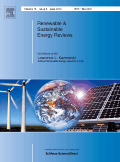
RENEWABLE & SUSTAINABLE ENERGY REVIEWS
Connecting Academia with Practical Energy SolutionsRENEWABLE & SUSTAINABLE ENERGY REVIEWS is a premier interdisciplinary journal published by Pergamon-Elsevier Science Ltd that focuses on cutting-edge research and reviews in the field of renewable energy and sustainability. With an esteemed impact factor, the journal stands out in Q1 category rankings for Renewable Energy, Sustainability, and the Environment, holding a remarkable rank of #7 out of 270 in Scopus with a 97th percentile rating. Since its inception in 1997, it has provided a vital platform for scholars and practitioners to disseminate knowledge, share innovative solutions, and discuss the technological advancements needed to foster a sustainable energy future. Although not currently offering open access, the journal ensures valuable insights are available to its audience, contributing enormously to the global discourse on renewable energy policy and practice. The journal is vital for anyone interested in the dynamics of sustainability in energy systems, as it bridges the gap between academia and practical application.
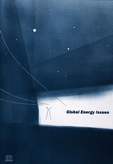
INTERNATIONAL JOURNAL OF GLOBAL ENERGY ISSUES
Bridging Knowledge Gaps for a Sustainable Energy FutureThe INTERNATIONAL JOURNAL OF GLOBAL ENERGY ISSUES, published by INDERSCIENCE ENTERPRISES LTD, stands as a vital platform for disseminating innovative research in the fields of energy engineering, nuclear energy, and renewable sustainability. With ISSN 0954-7118 and E-ISSN 1741-5128, this journal has been catering to the energy sector since 1989, advancing scholarly dialogue through critical analyses and discussions of emerging energy technologies and policies. Though currently categorized in the fourth quartile across various energy-related disciplines, the journal aims to bridge knowledge gaps and offer insights that challenge the status quo. Operating from its headquarters in the United Kingdom and accessible to a global audience, the journal encourages submissions that drive interdisciplinary research and provide solutions for pressing global energy challenges. Researchers, professionals, and students alike are invited to contribute and engage with this prestigious journal to influence the future of energy practices.
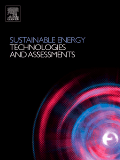
Sustainable Energy Technologies and Assessments
Exploring Breakthroughs in Renewable TechnologiesSustainable Energy Technologies and Assessments is a prestigious journal published by ELSEVIER, based in the United Kingdom, focusing on the critical field of energy engineering and its intersection with sustainability. Since its inception in 2013, the journal has established itself as a leading platform for disseminating innovative research and assessments of sustainable energy technologies, earning a notable Q1 ranking in both Energy Engineering and Power Technology, as well as Renewable Energy, Sustainability, and the Environment. With an impressive Scopus ranking—#22 out of 272 in Energy Engineering and #40 out of 270 in Renewable Energy—this journal is essential for researchers and professionals seeking to advance their knowledge on cutting-edge developments and assessments in sustainable energy. Although the journal operates on a subscription basis, it remains committed to promoting high-quality research that aligns with global sustainability objectives. Researchers and students alike will find invaluable insights and data that shape the future of renewable energy technologies within these pages.
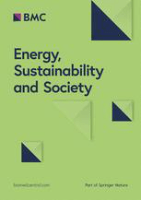
Energy Sustainability and Society
Connecting research and practice for a sustainable energy landscape.Energy Sustainability and Society is a leading open-access journal published by BMC, focusing on the critical intersections of energy sustainability and societal impacts. With an impressive Impact Factor and notable rankings—including Q1 in both Development and Energy Engineering, as well as Q2 in Renewable Energy, Sustainability, and the Environment—this journal serves as a pivotal platform for researchers, professionals, and students exploring innovative solutions to energy challenges. Since its inception in 2011, the journal has consistently provided high-quality research and insights, contributing significantly to the fields of energy policy, renewable technologies, and sustainable development. Access options are fully open-access, ensuring that research is freely available to foster collaboration and knowledge-sharing across disciplines. The journal’s commitment to publishing cutting-edge research underscores its importance in shaping a sustainable energy future.

Global Energy Interconnection-China
Fostering Collaborative Insights in Renewable EnergyGlobal Energy Interconnection-China is an esteemed Open Access journal published by KEAI PUBLISHING LTD that focuses on the rapidly evolving fields of energy engineering and power technology. Since its launch in 2018, the journal has become a vital resource for researchers and professionals interested in sustainable energy solutions and innovative technologies, addressing the critical challenges facing the global energy landscape. With an impressive Q2 categorization in multiple engineering and energy-related disciplines, the journal ranks highly in Scopus, positioning itself as a leading platform for disseminating impactful research. Specifically, it excels in Automotive Engineering and Control and Systems Engineering, as evidenced by its competitive standing within the top quantiles of its fields. By leveraging its open access model, Global Energy Interconnection-China ensures that high-quality research is accessible to a worldwide audience, fostering collaboration and advancements in renewable energy, sustainability, and environmental conservation. For researchers, professionals, and students alike, this journal serves as a pivotal forum for sharing insights and innovations that shape the future of energy interconnection.

International Journal of Power and Energy Systems
Pioneering Research for a Sustainable TomorrowInternational Journal of Power and Energy Systems, published by ACTA PRESS, serves as a vital platform for research and discourse in the multifaceted fields of applied mathematics, electrical and electronic engineering, and energy engineering. With an ISSN of 1078-3466 and an E-ISSN of 1710-2243, this journal covers a broad spectrum of topics pertinent to power and energy systems, showcasing innovative research from its inception in 1996 through to its projected contributions in 2024. Operating from Calgary, Canada, the journal, though not currently open access, provides invaluable insights into the challenges and advancements within these domains, as reflected in its categorization in the Q4 quartile across multiple indices. Despite being positioned in lower output percentiles in 2023 rankings on Scopus—specifically, #212 in Energy Engineering and Power Technology—it remains a critical resource for scholars seeking to expand the frontiers of knowledge in energy sustainability and system efficiency. Researchers, professionals, and students alike will find the journal’s commitment to fostering academic dialogue and disseminating pioneering results both essential and inspiring.